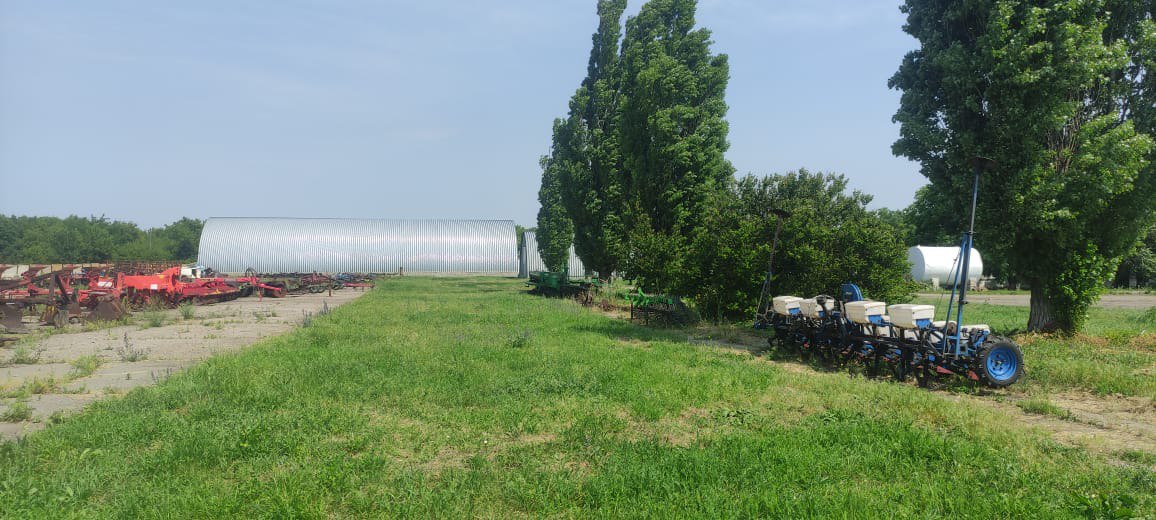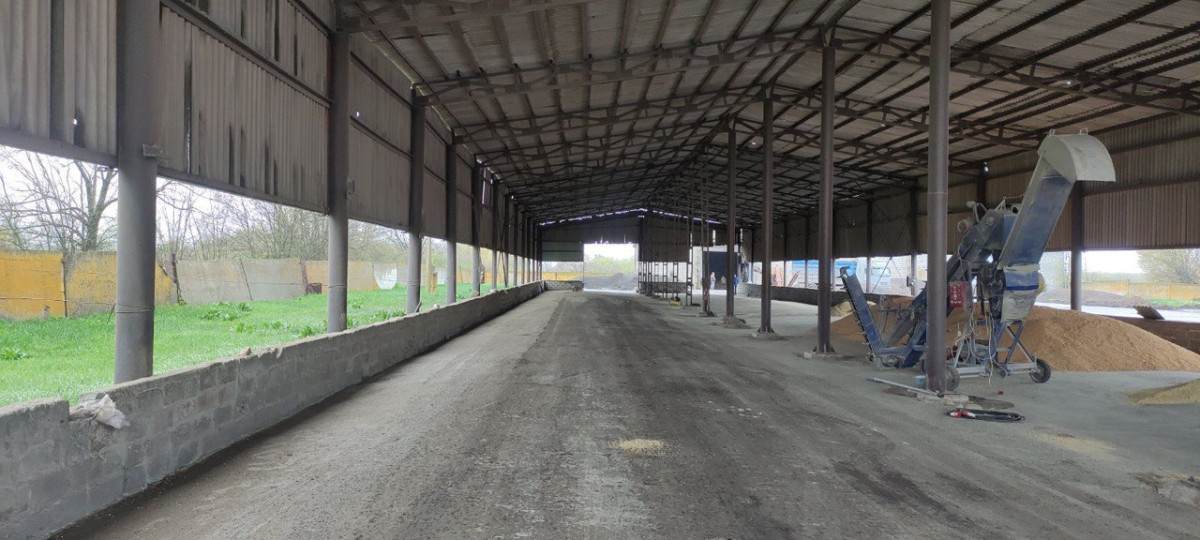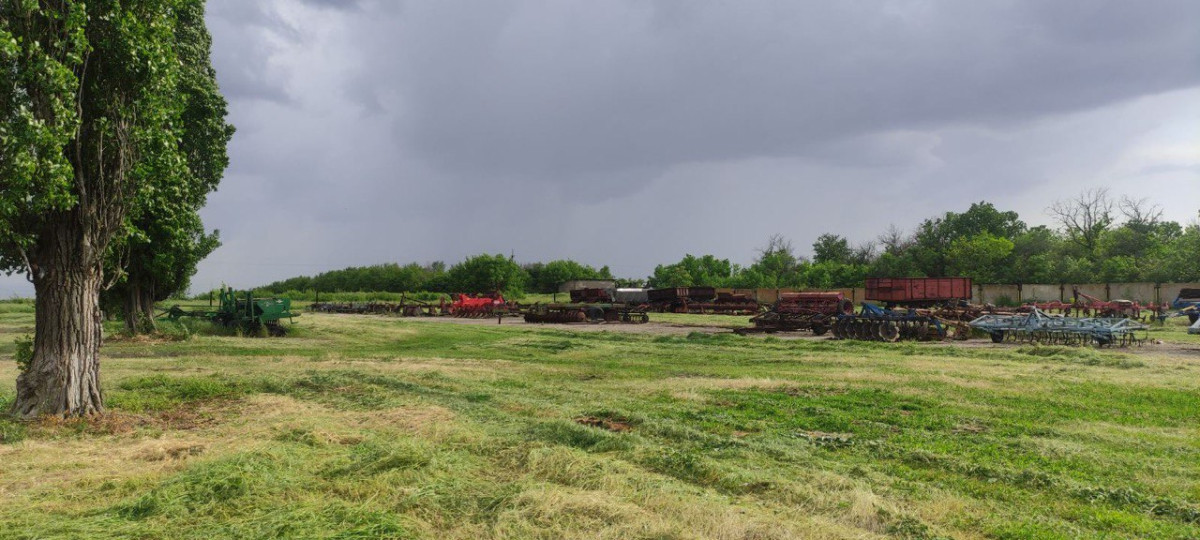

Why did the SPFU fail to sell the former enterprise of the Russian oligarch at the first attempt and what are the prospects for its privatization?
In July, the State Property Fund of Ukraine finally announced the start of privatization of confiscated Russian assets. The campaign started slowly, with a single object being auctioned – the agricultural enterprise Investahro in the Dnipro oblast.
Previously, it belonged to Mykhailo Shelkov, a Russian businessman and supplier to the aggressor’s military and defense industry. The company was confiscated and transferred to the SPFU in February 2023.
The auction for the lot was scheduled for August. However, the sale of the asset did not go as smoothly as we had hoped.
What went wrong?
Despite the fact that potential investors had almost a month to submit applications, no one showed up for the first auction for the sale of the company. The State Property Fund attributed the failure to the company’s financial situation.
According to the terms of the sale, the buyer has to pay off more than UAH 1 million of the company’s wage and budget debts within six months after the acquisition. However, this is only a part of the company’s debt, which totals more than UAH 17 million, and which the investor will have to deal with.
In addition, almost 40% of the company’s book value is accounted for by accounts receivable, i.e. debts of counterparties to the company, while its own property assets are estimated at slightly less than UAH 4 million. Moreover, almost all of Investahro’s real estate is under a ban on alienation. Therefore, the buyer will not be able to take full control of a significant part of the asset immediately after its acquisition.
The unstable situation in the agricultural sector due to the war does not add to the confidence of potential investors. According to a survey conducted by the Food and Agriculture Organization of the United Nations, 44% of agricultural producers reported a dramatic increase in their production costs, and one in four respondents said they had reduced or stopped production due to the war. The company’s financial reporting also confirms this statistic: the cost of production for half of 2023 exceeded the annual figures for the previous 3 years.
Despite the government’s announcement that agricultural land in the Dnipro oblast has been cleared of mines, the company continues to be located within a 55-kilometer zone from the frontline. This also negatively affects the investment attractiveness of the asset.
Taken together, these circumstances confirm the existence of problems under which the declared starting price of UAH 55 million does not correspond to the real value of the asset.
According to the terms of the sale, the buyer has to pay off more than UAH 1 million of the company's wage and budget debts within six months after the acquisition. However, this is only a part of the company's debt, which totals more than UAH 17 million, and which the investor will have to deal with.
Andrii Shvadchak
However, the sale of distressed assets is a common practice for the State Property Fund.
Especially given the condition in which Ukrainian state-owned enterprises are being transferred for further privatization. For this purpose, the legislation provides for appropriate mechanisms, such as repeated auctions, where private investors can compete for an object for half its starting price, which does not limit their ability to increase the price.
Thus, after the first unsuccessful attempt, the Prozorro.Sale system automatically announced a second auction for the privatization of the asset. However, it did not take place either – the SPFU canceled the auction a day after the announcement.
Notably, the agency did not comment on this decision, focusing instead on preparing new confiscated assets for privatization. However, according to the text of the order to cancel the auction, it was adopted “in order to achieve the goals of privatization and ensure the revenues from privatization to the state budget.” Thus, the sale may be postponed for some time to find opportunities to improve the asset or even an alternative scenario for its sale. But is this possible in the long run?
What can the SPFU do on its part?
- Reducing the debt burden.
Due to unfavorable conditions in the agricultural sector, the company’s financial performance has deteriorated significantly over the past year and a half. As a result, the company’s available funds (just over UAH 3 million) are sufficient to pay off its debts to the budget and employees, but not enough to repay its debts to creditors.
Some of the creditors’ monetary claims (UAH 2.8 million) against the company are still pending or may become subject to lawsuits, and may be challenged if they are unjustified. However, without additional resources, for example, from the collection of receivables, a significant reduction in the company’s debt burden is unlikely.
- Removal of existing encumbrances on property.
Another problem that the Fund may try to solve is to free the company’s property from encumbrances. 24 out of 25 of its real estate properties are under a ban. But despite the legal possibility of alienating encumbered property, it is unlikely that this will encourage investors to buy it and then deal with these prohibitions – especially if they have been in place since 2011.
- Collection of receivables and revaluation of the company’s value.
According to the company’s financial reports, in 2022, the debt of counterparties to Investahro for the products purchased from it increased from UAH 184 thousand to UAH 11.8 million. As of the end of June, the total receivables amounted to UAH 21 million.
However, according to the Unified State Register of Court Decisions, the company has only once applied to the court since the beginning of 2022 to recover the debt in its favor. This indicates a prolonged failure of management to act and the need to analyze and organize the company’s work on the issue of recovering the funds it is owed. Based on the results of this, it will be possible to revalue the company’s assets to reflect the real situation.
- Alternative sale scenario.
Prior to the announcement of the first auction, the media reported that the company should be merged into a privatization pool with another former asset of oligarch Shelkov, the Demurynskyi Mining and Processing Plant. The State Property Fund also intends to sell it this year.
The fact is that the land leased by Investahro allegedly occupies almost half of the territory of the Vovchanskyi titanium-zirconium ore deposit, which is being developed by the Demurynskyi Mining and Processing Plant. The integration and subsequent sale of these companies as a single lot should increase the price and interest of investors. Moreover, negotiations are already ongoing to merge the plant with another titanium industry giant, UMCC.
But to combine these objects into a pool, several conditions must be met:
- making a decision to privatize an object without publishing an information notice on the sale. The State Property Fund involuntarily (or deliberately?) fulfilled this requirement, as the previously published information notice was canceled along with the auction. At the same time, the decision on privatization was not canceled;
- change in Investahro’s business activities. The requirements for the formation of a pool require that the merging companies operate in the same sector of the economy (within the same section of the Classifier of Economic Activities) or use the products of one company to produce the products of another. Under such restrictions, if Investahro continues to operate exclusively in the agricultural sector, it will be impossible to merge with Demurynskyi MPP.
The State Property Fund reported that the use of land currently leased by Investahro could ensure the consistent operation of the MPP in accordance with the established design capacity in the future. At the same time, the agency believes that the integration of the MPP’s assets with Investahro is unpromising, as the latter does not actually own the land but only leases it from private owners. It is with them that the land easement will be concluded if it is necessary to use these plots for the purposes of the plant’s operations.
However, the situation may change once legal entities are granted access to the agricultural land market, which is planned for early 2024, and tenants are granted a preferential right to purchase land plots for use. Therefore, this scenario of selling Investahro should not be completely dismissed.
The first failure to sell the confiscated assets demonstrated how scrutinizing investors are about distressed assets, especially in times of war.
By canceling the auction, the State Property Fund took a break from selling Investahro to look for additional opportunities to improve the asset. We see room for this as the proposed scenarios could potentially help to eliminate some of its problems before a new auction is announced. At the same time, the integration of Investahro with other assets for further sale remains unlikely but still realistic.
Implementation of any of these scenarios will take time, so the agency needs to continue working with other confiscated assets in the meantime, and the Fund has announced this. However, it is possible to get the most out of privatization only if the assets are properly prepared before the sale, otherwise, it will be necessary to “put out fires” in emergency mode or look for alternative ways to increase the investment attractiveness of the objects.
It is important that this experience is taken into account before the next Russian assets are sold. Otherwise, they will never work for Ukraine’s reconstruction.
Implementation of any of these scenarios will take time, so the agency needs to continue working with other confiscated assets in the meantime, and the Fund has announced this. However, it is possible to get the most out of privatization only if the assets are properly prepared before the sale, otherwise, it will be necessary to "put out fires" in emergency mode or look for alternative ways to increase the investment attractiveness of the objects.
Andrii Shvadchak
This publication was prepared by Transparency International Ukraine with the financial support of Sweden.









